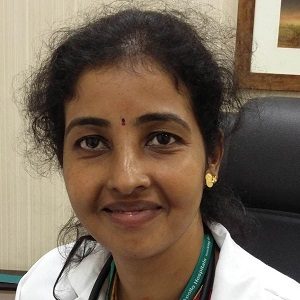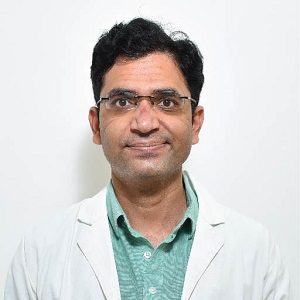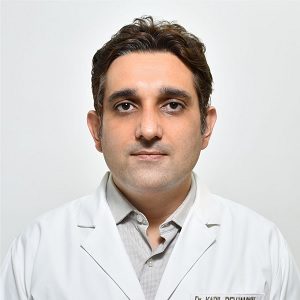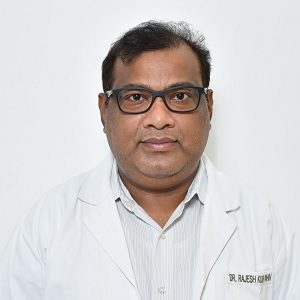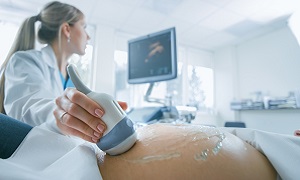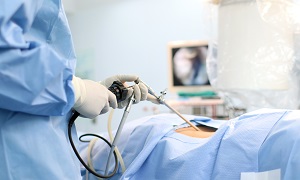Best Appendicitis Treatment Doctors in India
- Gastroenterologist and GI Medicine Specialist, Chennai, India
- Over 18 years’ experience
- Apollo Hospitals Greams Road
Profile Highlights:
- Dr. Preethi M is one of the best gastroenterologists in India, with 18 years of expertise.
- Dr. Preethi received many awards for her contribution to the field.
- She offers consultation for Irritable Bowel Syndrome (IBS), Hemorrhoids, Endoscopy, female problems, and other gastrointestinal issues.
- Gastroenterologist and GI Medicine Specialist, Chennai, India
- Over 23 years’ experience
- Apollo Hospitals Greams Road
Profile Highlights:
- Dr. Ubal Dhus is a GI specialist doctor in South India who is proficiently managing Gastroenterological disorders for the past 23 years.
- He acquired his medical degree from Madras University, Chennai, and served people with Hemorrhoids Treatment, and Irritable Bowel Syndrome (IBS) Treatment.
- Gastroenterologist, Gurugram, India
- Over 7 years’ experience
- Artemis Hospital, Gurgaon
Profile Highlights:
- Dr. Abhinandan Mishra is one of the young Gastroenterology doctors in Gurugram who is particularly interested in inflammatory bowel disease treatment.
- Dr. Abhinandan Mishra offers Endoscopic Retrograde Cholangiopancreatography, Ascites tap, Endoscopy, Peroral Endoscopic Myotomy, Capsule Endoscopy, Esophageal Manometry, Magnetic Resonance Cholangiopancreatography, etc.
- Gastroenterologist, Gurugram, India
- Over 15 years’ experience
- Artemis Hospital, Gurgaon
Profile Highlights:
- Dr. Kapil Jamwal is a renowned GI practitioner in Gurugram with an extensive experience in digestive and liver disease.
- The specialist offers treatment for Hepatitis B, Jaundice, Hepatitis C, Inflammatory Bowel Syndrome, Acute Pancreatitis, Liver Diseases, and Irritable Bowel Syndrome.
- Gastroenterologist, Gurugram, India
- Over 18 years’ experience
- Artemis Hospital, Gurgaon
Profile Highlights:
- Dr. Rajesh Padhan is a renowned Gastroenterologist in Gurugram with an extensive experience of more than 18 years in the field.
- He is skilled in carrying out various endoscopy procedures such as Colonoscopy, Endoscopic retrograde cholangiopancreatography, Endoscopic ultrasound, upper GI endoscopy, etc.
- Top Gastroenterologist & Hepatologist | Max Hospital, Saket, New Delhi, India
- 28+ Years Experience
- Max Super Specialty Hospital, Saket, New Delhi
Profile Highlights:
- Dr. Kaushal Madan is a renowned Gastroenterologist and Hepatologist in India with over 28 years of experience.
- He specializes in diagnosing and treating various digestive system disorders, including liver cancer, liver cirrhosis, fatty liver, and hepatitis B and C.
- Dr. Madan provides comprehensive care to liver transplant recipients, offering both pre- and post-operative support.
- He currently serves as the Director and Head of Clinical Hepatology Department at Max Super Speciality Hospital in New Delhi.
- Gastroenterology, Medanta - The Medicity, New Delhi, India
- 40+ Years Experience
- Medanta-The Medicity, Gurgaon
Profile Highlights:
- Dr. Randhir Sud is a preeminent figure in the field of gastroenterology, renowned for his groundbreaking contributions to gastrointestinal endoscopy and therapeutic interventions.
- As the Chairman of the Gastroenterology department at Medanta in Gurugram, Dr. Sud has played a pivotal role in advancing the field of gastroenterology in India.
- Dr. Sud is credited with revolutionizing the practice of gastrointestinal endoscopy in India. He has been instrumental in establishing and integrating advanced GI endoscopic therapy into clinical practice through extensive training programs and live workshops.
Best Appendicitis Treatment Hospitals in India.
Hospital Highlights:
- Apollo Hospitals is a private healthcare group in India, with its headquarters based in Chennai. Established in 1983 by Dr. Prathap C. Reddy, the group offers a wide range of medical treatments and services across various specialties.
- It is renowned for emphasizing innovation and utilizing cutting-edge medical technologies into patient treatment.
- Known as India’s first corporate hospital, Apollo Hospitals is often credited for pioneering the private healthcare revolution in the country.
- With clinics and hospitals located all throughout India, Apollo Hospitals is a nationwide healthcare organization. Its presence can also be found in foreign countries.
- Preventive health examinations, medical and surgical treatment, and diagnostic centres are just a few of the services that the Apollo group provides.
- The group has several centres of expertise, including Cardiac Sciences, Neurosciences, Orthopedics, Emergency Care, Cancer Care, and Organ Transplantation.
- City: Chennai, India
Hospital Highlights:
- RIMC is a multi-specialty hospital in a sprawling area of 36 acres located in Chromepet, Chennai, Tamil Nadu, India.
- The facility has 450 beds including 130 critical care beds, 9 operating rooms, modern reference laboratories and radiology services, and is conveniently located near road, rail and air transportation.
- RIMC is led and managed by world-renowned physicians committed to healthcare.
- RIMC offers the broadest range of clinical care, education, and research. The hospital offers state-of-the-art technology and modern treatment facilities designed to provide health care at an affordable cost.
- Rela Institute is driven by patient needs, comfort and confidence.
- City: New Delhi, India
Hospital Highlights:
- Fortis Hospital in Shalimar Bagh is a multi-super specialty hospital that strives to provide world-class patient care by leaving no stone unturned.
- Fortis, Shalimar Bagh, with 262 beds and a 7.34-acre footprint, provides the best level of medical care through its team of doctors, nurses, technicians, and management professionals.
- City: Bengaluru, India
Hospital Highlights:
- Established in 2007, the Apollo Hospitals Bangalore is a 300-bed multispecialty hospital situated in Bannerghatta Road, Bangalore.
- Equipped with the state-of-the-art technology, it is a leading hospital dedicated to providing healthcare needs to patients with compassion and expertise.
- It is the first hospital to have completed the highest number of Robot Assisted Heart Surgeries in India.
- Over the years, it has successfully conducted some of the rarest medical procedures such as spinal angiolipoma excision, autologous chondrocyte implantations, and tibial tuberosity shift with MPSL reconstruction.
- The Apollo Hospitals Bangalore has the reputation of performing the greatest series of airway stents in the country.
- Additionally, the hospital is known for providing comprehensive treatment in specialties such as gastroenterology, urology, gynecology, oncology, colorectal surgery, etc.
- The “The Minimal Access Surgery Centre” (MASC), one of Apollo Hospitals, Bangalore’s premier Centres of Excellence, is devoted to the use of minimally invasive surgical procedures.
- In 2013, THE WEEK-A C Nielsen, Best Hospital Survey ranked Apollo Hospitals Bangalore as the 2nd best multi-speciality hospital in Bangalore.
- City: Mumbai, India
Hospital Highlights:
- Gleneagles Global Hospital The 450-bed facility comprises of 17-stories, housing state-of-the-art infrastructure, and advanced medical care facilities.
- The hospital offers end-to-end clinical, surgical, and diagnostic services. It is equipped with a team of eminent medical professionals aided by qualified nurses and medical staff
- The Hospital offers advanced Endoscopic procedures, Hepatobiliary and Liver Surgeries, Surgical and Medical Gastroenterology, Bariatric Surgery, and Robotic surgery.
- The hospital is a center of excellence for Orthopedics, Joint Replacement, Knee Replacement, and Hip Replacement surgery.
- City: Hyderabad, India
Hospital Highlights:
- CARE Hospitals were established in the year 2000, by CARE Group.
- The multispecialty hospital has 435 beds, including 120 critical care beds, with an annual inflow of 180000 outpatients and 16,000 in-patients.
- The hospital provides specialty medical services in Cardiology, Cardiothoracic Surgery, Pediatric Cardiology, Pediatric Cardiothoracic Surgery, Neurology, Neurosurgery, Nephrology, and Urology.
- The hospital has the first dual source, 128 slice CT scanner (for high precision cardiac imaging) – the first of its kind in south India.
- The hospital offers a wide range of accommodation facilities for the convenience of its varied patient base, ranging from general wards to super deluxe rooms.
- City: Mumbai, India
Hospital Highlights:
- Fortis Hospital in Mulund is a 315-bed multi-speciality tertiary care hospital with five JCI accreditations that offers a wide variety of diagnostic and treatment services. The Fortis Hospital in Mulund delivers patient-centred treatment with cutting-edge technology, highly skilled and experienced surgeons, and paramedical staff.
- This institution houses Maharashtra’s largest multi-organ transplant centre. It is also the first heart transplant centre in western India to conduct 100 or more consecutive heart transplants in under four years. It is the only hospital in the city to have multi-organ transplants and has handled the youngest patient for angioplasty. Fortis Hospital Mulund now boasts the first advanced surgical robot in central Mumbai.
- Cardiology and heart surgery, urology, nephrology, neurosciences, orthopaedics, digestive care, emergency and critical care, and maternity care are among the services provided by the hospital.
- City: New Delhi, India
Hospital Highlights:
- Manipal Hospitals, Dwarka, is a super-specialty hospital in Dwarka, New Delhi, which is a part of Manipal Hospitals Group.
- The hospital aims to provide the best treatment on par with international standards at a fraction of the cost.
- Equipped with 380 beds, the hospital is also one of the new age hospitals which are equipped fully with state-of-the-art infrastructure, cutting-edge technology as well as the latest and advanced clinical practices. The hospital also has 13 modular Operation theatres with 118 beds which are solely meant for critical care.
- The hospital comprises internationally acclaimed doctors and highly professional and experienced hospital and medical staff who are able to provide preventive, therapeutic, and diagnostic services all under one roof.
- City: Chennai, India
Hospital Highlights:
- Located in Chennai, India, MGM Healthcare is a top multispecialty hospital that provides all medical services under one roof.
- Since its founding in 2019, MGM Healthcare has quickly become a leading national referral centre, creating several innovative flagship initiatives.
- MGM Healthcare combines next-generation medical and digital technologies to provide better patient results.
- With 12 centres of excellence, more than 400 inpatient beds, 100 intensive care unit beds, and 24/7 emergency care, MGM Healthcare leaves no chance in redefining the patient experience in Chennai.
- MGM Healthcare boasts 250+ expert doctors across 30+ departments, including Cardiology, Pulmonology, Neurology, Obstetrics & Gynaecology, and more.
- They house 12 specialized Centres of Excellence, including Neurosciences, Orthopaedics, and Multi-Organ Transplantation.
- Their team of doctors, nurses, and paramedics works together to give every patient individualized treatment.
Hospital Highlights:
- Lilavati Hospital & Research Centre is India’s premier multi-speciality tertiary care hospital and has been recognised as a global medical excellence centre.
- Lilavati Hospital & Research Centre has built an unrivalled level of trust with its patients over the years, thanks to a solid foundation that comprises cutting-edge facilities, the best medical competence, research, education, and charity endeavours.
- The hospital is quite proud of the fact that it now serves patients from all kinds of backgrounds, not just from the United States but from all around the world.
- The hospital has a total of 323 beds, one of the largest Intensive Care Units (ICUs), 12 Operation Theatres with modern amenities, over 300 consultants, and almost 1,800 personnel.
What is Appendicitis?
Appendicitis is a medical condition in which there is an inflammation of the Appendix. The Appendix is a finger-shaped pouch that projects from the colon on the right side of our abdomen.
Patients with appendicitis experience pain in lower abdomen. The pain generally begins around the navel and progresses. The pain becomes intense as the inflammation worsens.
Appendicitis generally occurs in the age group 10-30, but can happen at other ages also.
Types of Appendicitis
The two common types of Appendicitis are:
- Acute Appendicitis – Acute Appendicitis appears suddenly and can be severe in nature. Acute appendicitis requires instant/ immediate medical attention and is actually more common than chronic appendicitis
- Chronic Appendicitis – In Chronic Appendicitis, the symptoms are mild and progressive in nature and may come and go from time to time. This type of appendicitis can be hard to diagnose and may only be detected if it turns into acute appendicitis.
Possible complications of untreated Appendicitis
An untreated appendicitis is much more dangerous as it can burst and cause a nasty bacterial spill in your gut and larger intestine which is actually quite dangerous.
But hopefully, you don’t have to wait around waiting for your appendix to rupture, especially if you know everything about the common appendicitis symptoms and most importantly the cause.
Causes of Appendicitis
Although we are yet to determine the exact cause of appendicitis, here’s what doctors and medical practitioners have narrowed down the most probable causes leading to this condition.
Appendicitis primarily develops when a part of the appendix gets blocked or obstructed by any object inside the body. The object can be anything from-
● Intestinal worms
● Hardened stool
● Physical trauma
● Certain foreign body
● Cancer (Rare but possible)
Symptoms of Appendicitis
The most common appendicitis symptoms would include:
- Pain in the navel region (above or below)
- Pain in the lower right abdominal area
- Recurring indigestion
- Nausea (maybe accompanied by vomiting)
- Appetite loss
- Diarrhea / constipation
- Bloating or abdominal swelling
- Mild fever
Appendicitis pain starts off mild much like cramps but would eventually grow more and more intense with time. Also, the initial source of the pain keeps changing with time moving from the upper abdomen to the lower right section of your abdomen.
Diagnosis of Appendicitis
Following are some of the diagnostic tests for Appendicitis.
- CT scan / MRI / X-Ray
- Ultrasound
- Complete Blood Count or CBC Test
- Urine test (to determine presence of infection)
- Rectal test
- Physical exams (to access pain, inflammation, discomfort level)
Appendicitis Treatment
Based on your age, severity, and other variables; you doctor may suggest some non-invasive treatment methods such as- antibiotics, pain relievers, liquid diet etc.
However, in most of the appendicitis cases, a surgery is the best option for a complete cure and the surgery most commonly practiced for it is known as Appendectomy. This standard form of treatment eliminates not just the inflamed organ but probable safety hazard risks such as appendix rupture too.
Appendicitis Surgery
The two primary invasive treatment methods thus include:
Appendectomy
Appendectomy is an open surgery where a small incision is made to surgically remove the inflamed appendix. However, laparoscopic surgery options are becoming more and more common these days where small surgical tools are inserted along with a minute video camera to surgically remove the appendix. The recovery time for this procedure is usually fast with almost 90% success rate.
Abscess Drainage
Appendicitis Surgery- things you need to remember
- If your medical practitioner recommends surgical intervention, please disclose your full medical history (along with existing or current medication routine) before the surgery.
- Your doctor may request you to follow a certain diet which may include liquids, no alcohol, and no tobacco! Please follow the routine strictly as it can increase the success rate of your surgery.
- You can be back on your feet within 12 hrs of this surgery (provided there are no additional complications)
- If you experience symptoms like nausea, intense stomach /abdominal pain, high fever, bloody vomit, wound infection from the surgery- please contact your doctor immediately
Appendicitis post recovery care
For the next few weeks after your appendicitis surgery, here are some of the basic lifestyle steps you should take to ensure a speedy recovery:
- Don’t live a sedentary lifestyle but don’t go overboard with your activities. Start slow and slowly increase
- Provide support to your abdomen if you’re coughing. You can press a pillow over the abdomen and apply mild compression for support before you cough.
- Your doctor may prescribe some low dose pain medication to you. If your pain relievers fail to alleviate pain, please contact your doctor.
- Discuss going back to work or normal lifestyle and the type of help or assistance you would need with your healthcare professional.
Possible complications
Following are the possible complications of an untreated appendicitis:
- Internal Rupture – In case of prolonged ignorance or deliberate ignorance; as mentioned before, a rupture in the appendix can turn this condition from mild/serious to life-threatening!
- Abscess – Appendix bursts or ruptures can also lead to formation of a pus pocket inside the organ, commonly known as an Abscess. Surgeons have to manually drain the abscess in this case and a tube is left inside for about two weeks while you’re prescribed antibiotics to avoid infection.
Prevention is Better Than Cure
Following are the commonly recommended activities & food to avoid having a Appendicitis:
- Include well-cooked vegetables and fresh fruits in your diet
- Legumes and greens are great to keep indigestion and stool complications at bay
- Whole grains are also good for your everyday diet
- Don’t go overboard with anything. Everything appropriately measured and consumed can keep complications like this at bay.
- Sedentary lifestyle is a strict No-No.
FAQs
1. Can appendicitis risk depend on your age?
Yes! Appendicitis risks may vary based on age, sex (men are more likely to get affected than females), and dietary choices based on age groups.
2. How long do I have to wait before I can go back to my normal life?
3. Do I have to stay overnight in the hospital after appendicitis?
4. Do appendicitis run in the family?
Even though we are not sure if its hereditary-based or not, studies have shown, people with a family history of appendicitis are much prone to this condition.

